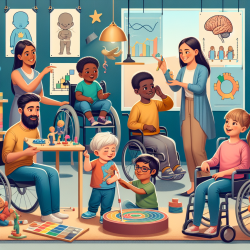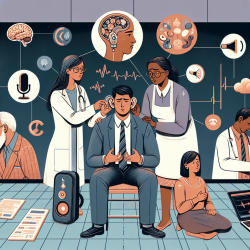Children with neurodevelopmental disabilities (NDDs) and their caregivers face significant mental health challenges, exacerbated by gaps in existing services. The recent study, "Mental health in children with disabilities and their families: red flags, services' impact, facilitators, barriers, and proposed solutions," provides a comprehensive analysis of these issues and suggests actionable solutions for healthcare practitioners.
Key Findings and Implications for Practice
Identifying Red Flags
The study identifies several precursors to mental health challenges in children with NDDs, including:
- Low self-esteem and negative self-talk
- Depression and anxiety symptoms
- School-related factors such as isolation and academic struggles
- Behavioral manifestations like sleep disturbances and food refusal
- Physical manifestations including agitation and physical aggression
These red flags can serve as early indicators, enabling practitioners to initiate timely interventions and support for affected children and their families.
Barriers to Effective Mental Health Services
The study highlights several barriers that hinder effective mental health care:
- Lack of targeted services and long waitlists
- Limited accessibility due to admission criteria and location
- Insufficient training and resources for healthcare practitioners
- Caregiver distress and lack of support
Addressing these barriers requires a multifaceted approach, including policy changes, increased funding, and enhanced training for healthcare providers.
Facilitators and Proposed Solutions
To improve mental health services for children with NDDs, the study recommends several facilitators and solutions:
- Implementing a family-centered approach to care
- Increasing interdisciplinary collaboration among healthcare providers
- Providing more comprehensive and accessible services
- Enhancing training and resources for practitioners
These strategies can help bridge the gap between the need for mental health services and their availability, ultimately improving outcomes for children and their families.
Call to Action for Practitioners
Healthcare practitioners are encouraged to incorporate these findings into their practice to enhance the quality of mental health care for children with NDDs. By recognizing early warning signs, addressing barriers, and implementing family-centered, interdisciplinary approaches, practitioners can make a significant impact on the well-being of these children and their families.
For more detailed insights and to explore the original research paper, please follow this link: Mental health in children with disabilities and their families: red flags, services' impact, facilitators, barriers, and proposed solutions.










